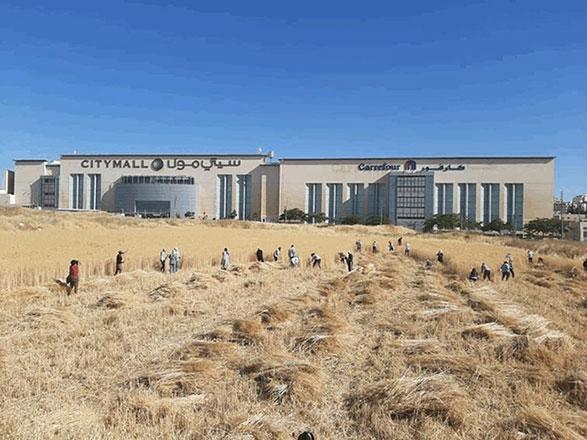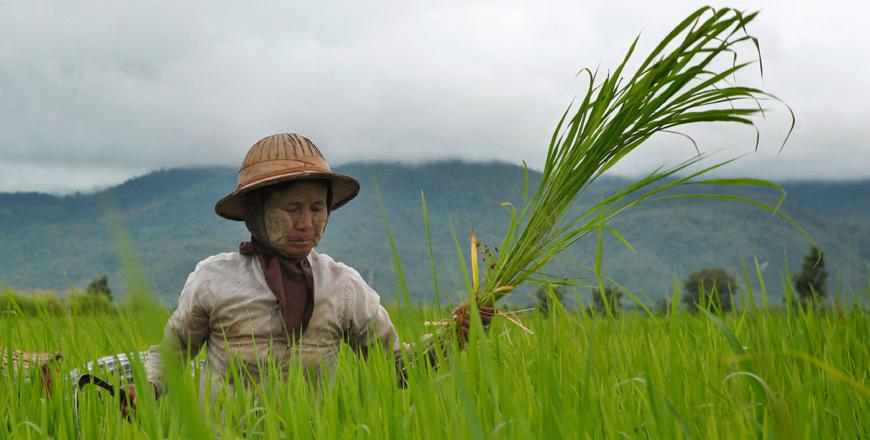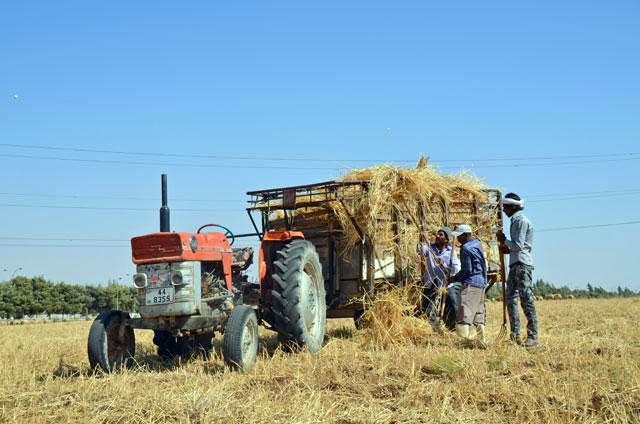You are here
Collective farming project sows seeds of agricultural independence
By Mays Ibrahim Mustafa - Oct 10,2021 - Last updated at Dec 05,2021

People work in a wheat field, planted by ‘Al Barakeh Wheat’, in Amman (Photo courtesy of ‘Al Barakeh Wheat’ Facebook page)
AMMAN — With the aim of “reclaiming independence and sovereignty over a main source of food and promoting collective farming”, two Jordanians in 2019 founded the independent project “Al Barakeh Wheat”.
Lama Al Khateeb and Rabee Zureikat, the project’s founders, envisioned that the collective will help Jordanians “reshape their relationship with their land,” Khateeb told The Jordan Times.
“Today, Jordan imports 97 per cent of its wheat and cereal needs, when in the 1960s its agriculture produce reached 200 per cent. This means that we don’t have any sovereignty over our food because the great majority of it is not produced in Jordan,” she said.
She said that the project teaches people how to cultivate their own wheat in Amman, “a rain-fed agricultural area that is now crowded with concrete buildings”.
“Participating families or individuals learn how to cultivate wheat from scratch for an entire season, while guided by experienced farmers,” said Khateeb.
The harvest is distributed among all participants, allowing them to enjoy local wheat that lasts them several months, she said.
Khateeb noted that 10 per cent of the produce is allocated as “zakat” to support families in need.
According to Islamic law, or Sharia, zakat is one of the five pillars of Islam, a tax that requires paying 2.5 per cent of what a Muslim owns in cash money, gold, silver, cattle, farms and rentable assets, in alms.
“We also work on reshaping the current economic system by buying wheat from farmers in prices that make cultivating it economically viable. The project then distributes it to bakeries and restaurants, thus encouraging farmers to grow more wheat and increasing the number of wheat patches in Jordan,” she added.
“Al Barakeh Wheat” project has opened registration for the second year in a row, according to Khateeb.
“Last season, 60 families participated in the ‘Al Barakeh Wheat’ project,” Khateeb said, expressing hope that even more people will feel the “urgency” of this cause and participate in the project this year.
The season starts by the end of November or the beginning of December, lasting for six months. Anyone can register to join in the experience of collective farming no later than October 13, said Khateeb.
Halimeh Al Adwan came all the way from Shouneh to Amman with her family of seven to join hands with “Al Barakeh Wheat” project last year.
Adwan said: “It was a wonderful learning experience that allowed the kids to know what it means to be productive and cultivate your own bread from scratch instead of buying it ready-made".
Baked goods made with 100 per cent local whole wheat are now sold at Qabalan’s bakery, Rumi Café, Oliva Jordan restaurant, stop & shop supermarket, and DearDiet Centre, according to Khateeb.
Related Articles
AMMAN — Head of the Lower House’s Economy and Investment Committee MP Omar Naber on Sunday stressed the importance of implementing the Econo
PARIS — Poor farmers the world over are increasingly falling prey to natural disasters, droughts and torrential rain largely due to climate
AMMAN — The Kingdom’s current reserve of wheat stands at around one million tonnes and can cover local consumption for 12 months, Minister o

















